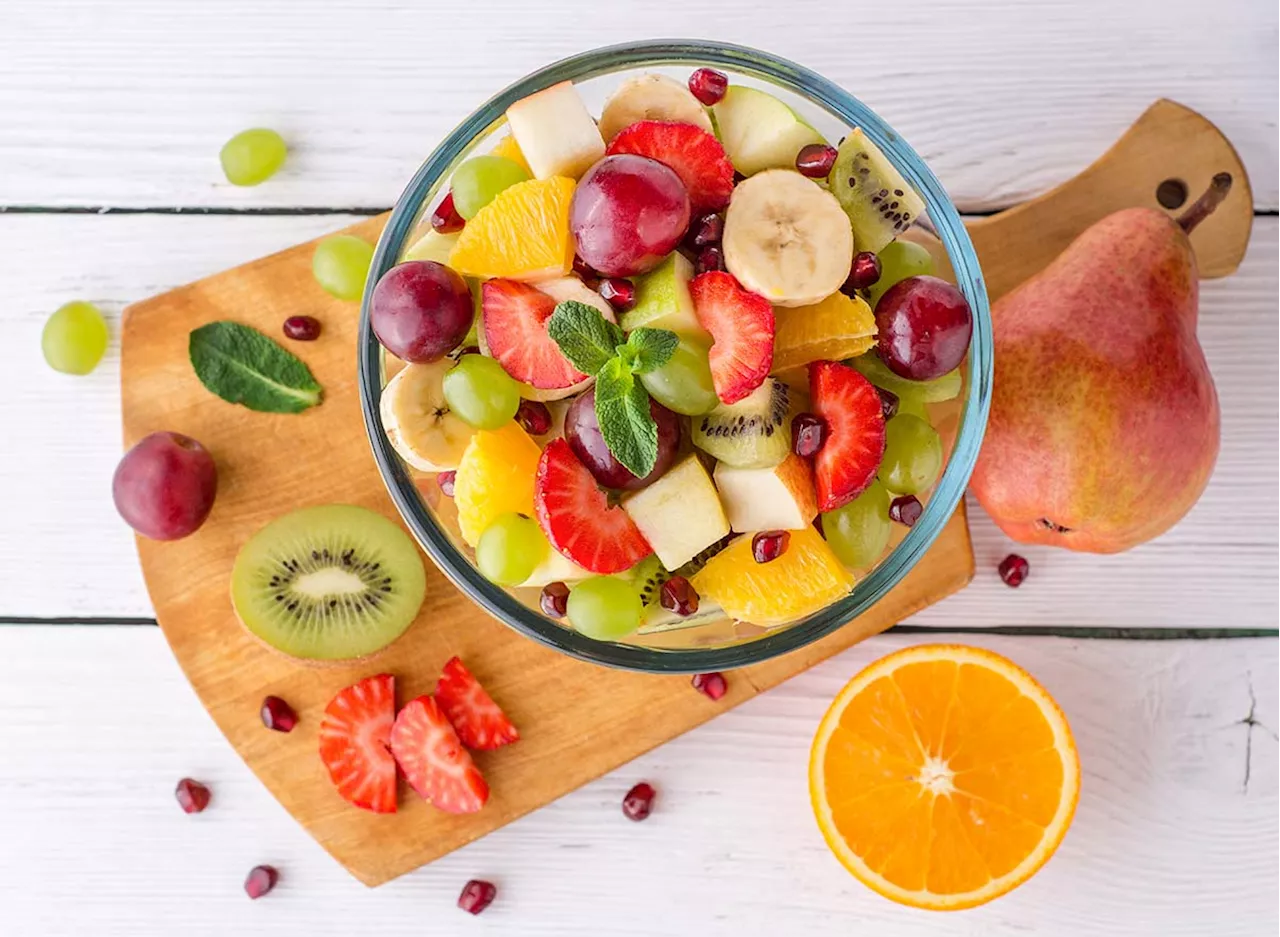This article explores the differences between fiber and fermented foods and their impact on gut health. It highlights research suggesting that fermented foods may be particularly beneficial for individuals with an unhealthy gut, followed by gradual fiber incorporation for optimal microbiome balance.
When it comes to gut health , two dietary powerhouses often take center stage: fiber and fermented foods . Both are essential for a thriving microbiome, but understanding their unique contributions can help you optimize your gut health journey. Fiber, a type of complex carbohydrate found exclusively in plants, acts as a prebiotic, providing nourishment for the good bacteria in your gut. It aids in digestion, promotes satiety, regulates blood sugar levels, and supports healthy bowel movements.
Examples of fiber-rich foods include buckwheat, barley, kale, broccoli, lentils, and many others. Fermented foods, on the other hand, are created through a process called fermentation, where yeast and bacteria break down sugars in food, resulting in a product teeming with probiotics – the beneficial bacteria themselves. Foods like kombucha, kimchi, sauerkraut, miso, and yogurt fall into this category. Fermented foods directly increase the population of good bacteria in your gut, contributing to a healthy balance. While both fiber and fermented foods are crucial, research suggests that focusing on fermented foods first can be particularly beneficial for individuals with an unhealthy or inflamed gut. A study cited by board-certified internist Vincent Pedre, M.D., author of The GutSMART Protocol, found that consuming six cups of fermented foods per day increased microbial diversity and reduced 19 inflammatory markers, compared to a group consuming five to eight servings of fiber per day. Dr. Pedre emphasizes that both fiber and fermented foods are essential for optimal gut health and that the focus shouldn't be on pitting them against each other. Ultimately, the ideal approach is to incorporate both into your diet for a well-rounded and thriving microbiome. Incorporating both fiber and fermented foods into your diet can significantly benefit your gut health. If you're dealing with an already compromised gut, prioritize fermented foods to replenish healthy bacteria and reduce inflammation. Once your gut has recovered, gradually increase your fiber intake to further nourish those beneficial bacteria.
Fiber Fermented Foods Gut Health Probiotics Microbiome Inflammation
United States Latest News, United States Headlines
Similar News:You can also read news stories similar to this one that we have collected from other news sources.
 Fiber Rich Foods Can Help Protect Against Food PoisoningA new study published in the journal reveals that a diet rich in fiber can help protect against food poisoning by promoting the growth of good bacteria in the gut. The study, which analyzed the gut microbiome of over 12,000 individuals from 45 countries, found that a high abundance of one particular bacterial species, , was linked to increased protection against various pathogenic bacteria, including and Klebsiella pneumoniae. Researchers believe that helps create a hostile gut environment for harmful bacteria by producing short-chain fatty acids through the breakdown of dietary fiber.
Fiber Rich Foods Can Help Protect Against Food PoisoningA new study published in the journal reveals that a diet rich in fiber can help protect against food poisoning by promoting the growth of good bacteria in the gut. The study, which analyzed the gut microbiome of over 12,000 individuals from 45 countries, found that a high abundance of one particular bacterial species, , was linked to increased protection against various pathogenic bacteria, including and Klebsiella pneumoniae. Researchers believe that helps create a hostile gut environment for harmful bacteria by producing short-chain fatty acids through the breakdown of dietary fiber.
Read more »
 A Dietitian's Guide to a Happy Gut: Prioritizing Fiber and Plant-Based FoodsThis article delves into the dietary habits of a registered dietitian and microbiome researcher, highlighting her strategies for maintaining a healthy gut through fiber-rich foods and a balanced approach to eating.
A Dietitian's Guide to a Happy Gut: Prioritizing Fiber and Plant-Based FoodsThis article delves into the dietary habits of a registered dietitian and microbiome researcher, highlighting her strategies for maintaining a healthy gut through fiber-rich foods and a balanced approach to eating.
Read more »
 Foods That Promote Aging vs. Foods That Fight ItThis article discusses foods that can contribute to aging and foods that can help combat it. It highlights the downsides of processed foods, dairy, excessive salt, and refined grains, while advocating for a diet rich in fruits, vegetables, whole grains, and lean protein sources.
Foods That Promote Aging vs. Foods That Fight ItThis article discusses foods that can contribute to aging and foods that can help combat it. It highlights the downsides of processed foods, dairy, excessive salt, and refined grains, while advocating for a diet rich in fruits, vegetables, whole grains, and lean protein sources.
Read more »
 Plant-Based Diets Linked to Healthier Gut MicrobiomesNew research suggests that people who consume more plant-based foods, regardless of whether they are vegan, vegetarian, or omnivorous, tend to have more favorable gut microbiomes compared to those who don't follow a healthy dietary pattern. The study found that red meat consumption was strongly associated with an omnivore microbiome, while vegan microbiomes were linked to beneficial cardiometabolic markers. The researchers emphasized that the diversity of healthy plant-based foods is crucial for gut health, and that excluding broad food categories, such as dairy fermented foods, can have negative consequences.
Plant-Based Diets Linked to Healthier Gut MicrobiomesNew research suggests that people who consume more plant-based foods, regardless of whether they are vegan, vegetarian, or omnivorous, tend to have more favorable gut microbiomes compared to those who don't follow a healthy dietary pattern. The study found that red meat consumption was strongly associated with an omnivore microbiome, while vegan microbiomes were linked to beneficial cardiometabolic markers. The researchers emphasized that the diversity of healthy plant-based foods is crucial for gut health, and that excluding broad food categories, such as dairy fermented foods, can have negative consequences.
Read more »
 10 Healthiest High-Fiber Fruits To EatDiscover the top 10 high-fiber fruits for a healthy diet, packed with essential vitamins, minerals, antioxidants, and fiber to support digestion, regulate blood sugar, and promote weight loss.
10 Healthiest High-Fiber Fruits To EatDiscover the top 10 high-fiber fruits for a healthy diet, packed with essential vitamins, minerals, antioxidants, and fiber to support digestion, regulate blood sugar, and promote weight loss.
Read more »
 Fiber-Rich Diet May Reduce Cancer Risk by Altering Gene ActivityA new study from Stanford Medicine highlights the potential of dietary fiber in lowering cancer risk. Research suggests that fiber, found in foods like oatmeal, can be broken down by gut bacteria into short-chain fatty acids, which can modify histones (DNA packaging proteins) and influence gene expression. This modification has been linked to anti-cancer effects, particularly in colorectal cancer, a disease seeing an increase in younger populations.
Fiber-Rich Diet May Reduce Cancer Risk by Altering Gene ActivityA new study from Stanford Medicine highlights the potential of dietary fiber in lowering cancer risk. Research suggests that fiber, found in foods like oatmeal, can be broken down by gut bacteria into short-chain fatty acids, which can modify histones (DNA packaging proteins) and influence gene expression. This modification has been linked to anti-cancer effects, particularly in colorectal cancer, a disease seeing an increase in younger populations.
Read more »
